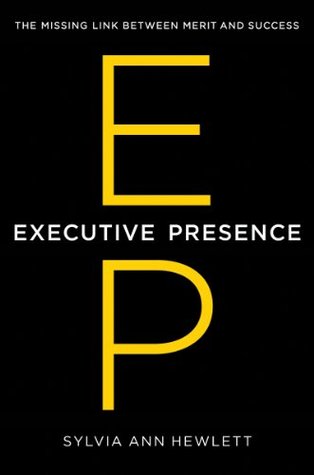More on this book
Kindle Notes & Highlights
outstanding practitioners of their musical craft. But in the finals what distinguished one from another was all of the nonmusic stuff. The way they walked onto the stage, the cut of their clothes, the set of their shoulders, the spark in their eyes, and the emotion that played on their faces. All of these things established a mood either of tedium and awkwardness or of excited anticipation.
Being able to look your coworkers in the eye when making a presentation, or being able to make eye contact with the audience when making a speech, has a transformative effect—on your ability to connect, to inspire, to create buy-in.
It means that you need to lose your glasses, your notes (and oftentimes your PowerPoint), and just wing it. This is not easy. It requires a huge commitment of time since you need to prepare and practice so thoroughly that the arc of your remarks becomes part of your muscle memory. There are no shortcuts.
But one thing was clear to me. I needed to be there. I wasn’t about to hide in my office and expect a junior colleague to deal with the tough stuff.”
he or she reveals integrity and demonstrates courage by uttering truths when they are inconvenient or most unwelcome.
he or she demonstrates courage and emotional intelligence that secures followership even in the wake of news that would seemingly destroy it.
These qualities connote gravitas, that weightiness or heft that marks you as worth following into the fire. Gravitas is the very essence of EP. Without it, you simply won’t be perceived as a leader, no matter what your title or level of authority, no matter how well you dress or speak. Gravitas, according to 62 percent of the leaders we surveyed, is what signal...
This highlight has been truncated due to consecutive passage length restrictions.
“Self-confidence is your iron core,” says Anne Erni, head of human resources at Bloomberg LP. “To lean into the wind when your heart is pounding, you have to believe in yourself, deep down. It’s not something you can fake.”
Making and enforcing unpopular decisions is indeed part of showing you’ve got the chops to be put in charge.
Workers confirmed that, previously, the culture discouraged asking for help, admitting mistakes, or building community. The crew, in prior years, had been “like a pack of lions,”
“A” engineers were not only fifty times better to have than “C” engineers, but also that “A’s do not like playing with C’s.”
you certainly don’t want fake optimism,” she elaborates. “You want brutal optimism. Great leaders are brutally optimistic.”
born leaders are made, oftentimes through their own systematic efforts. They live intentionally, guided by a set of values or a vision for their lives that compels them to seize every chance to put their convictions into practice. We gravitate to them because they telegraph that they know where they’re going—a rare and intoxicating certainty that most of us lack. That is the real font of their gravitas.
Executive presence is not what you do with your presence, it’s also what you do with other people’s presence.”
“In tech, it’s not just about innovating; you need to be thinking about worst-case scenarios and making sure they don’t happen,” she points out. “You’ve got to get into the detail, ask questions; you’ve got to keep challenging the group and your own assumptions.”
“Sometimes the very thing an organization wants you to change about yourself,” Fierstein concludes, “is the very thing you most need to change about them.” She adds, “When you acknowledge that, and start acting as a force for the greater good, others will follow your lead.”


